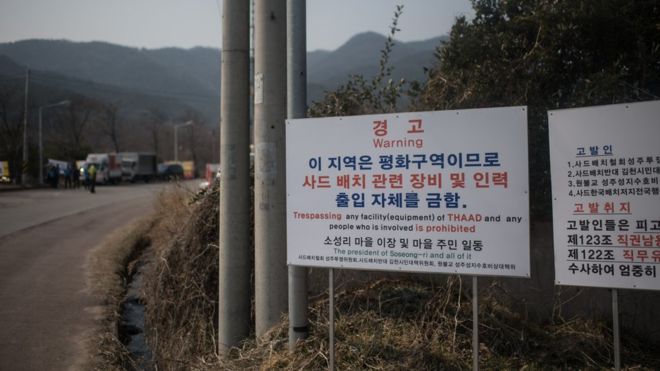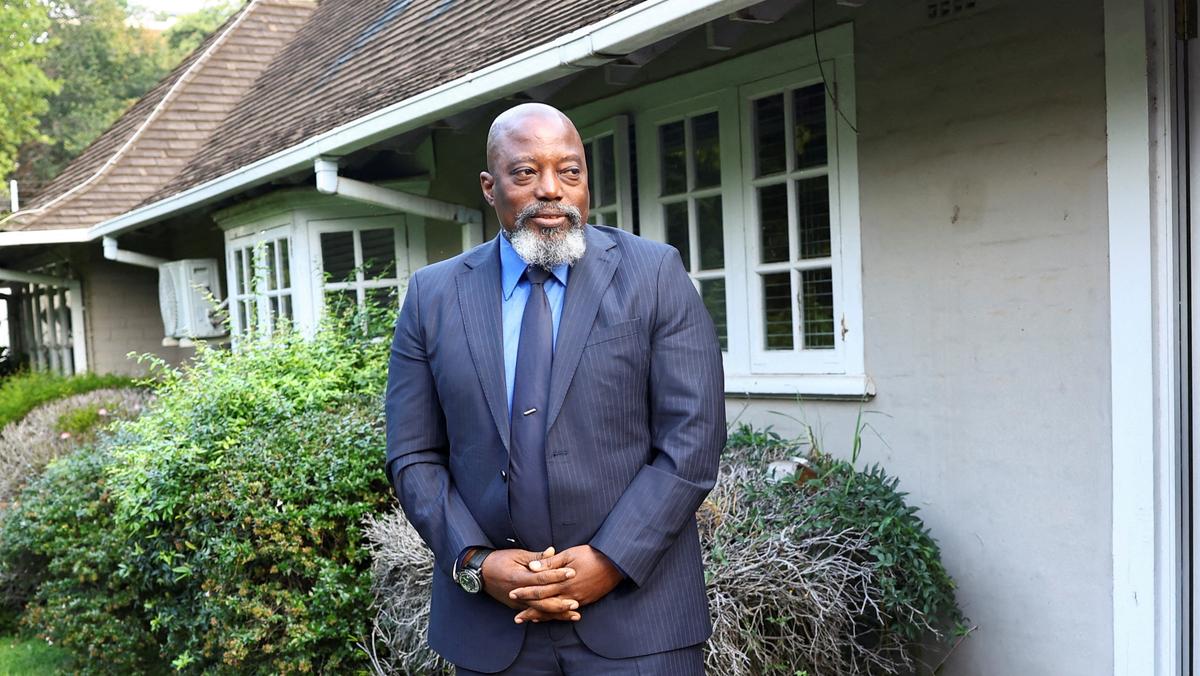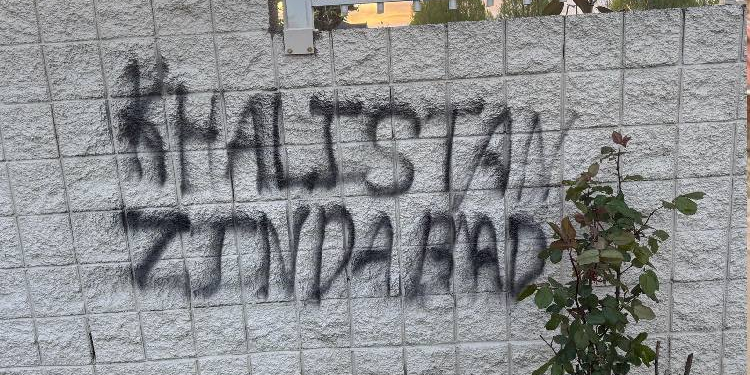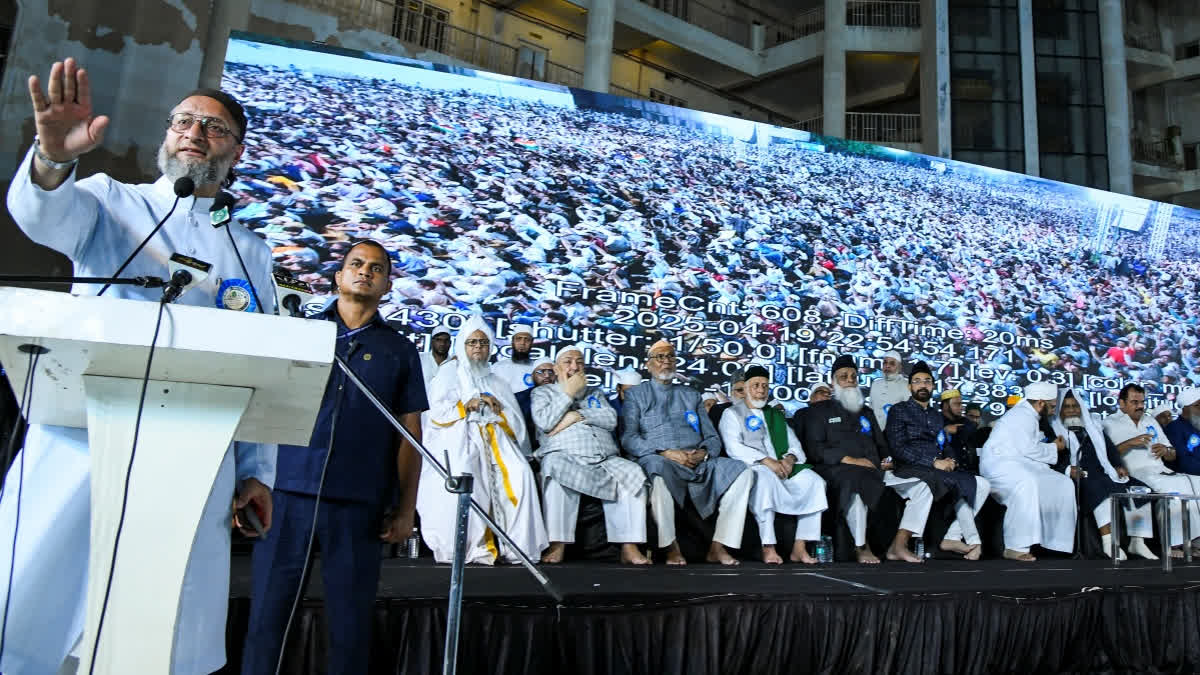S Korea complains to WTO about China over Thaad
Tue 21 Mar 2017, 15:57:04

South Korea has appealed to the World Trade Organization to determine if the Chinese government is treating South Korean companies unfairly.
Seoul claims Beijing is retaliating economically over its deployment of a US anti-missile defence system.
South Korea's Trade Minister Joo Hyung-hwan told parliament China "may be in violation of some trade agreements".
China opposes the deployment, saying it will affect the regional security balance and allow the US to spy on it.
Washington and Seoul say the Terminal High Altitude Area Defense (Thaad) system is designed to protect against threats from North Korea. But it has caused significant tension with China, which is South Korea's largest trading partner.
"The Chinese government may not admit that they took retaliatory measures against the Thaad decision, but we have to point out the possibility," Mr Joo said according to Yonhap news agency.
"We are collecting evidence and will also deal with issues that South Korean companies are treated unfairly in China."
South Korea complained about China to the WTO over the issue on Friday, Mr Joo said.
What is the Terminal High Altitude Area Defense System (Thaad)?
Shoots down short and medium-range ballistic missiles in the terminal phase of their flight
Uses hit-to-kill technology - where kinetic energy destroys the incoming warhead
Has a range of 200km and can reach an altitude of 150km
US has previously deployed it in Guam and Hawaii as a measure against potential attacks from North Korea
China's leaders have voiced serious displeasure over the Thaad system and its deployment has generated anti-South Korean sentiment.
The row has
coincided with a number of economic measures being imposed on South Korea.
China's National Tourism Administration ordered local travel agencies to stop selling tour packages to South Korea starting 15 March, according to Korea's Tourism Organisation.
"Some estimates suggest that Beijing's travel ban could reduce the number of Chinese visitors to South Korea by up to 70%, resulting in billions of dollars in lost tourism-related revenue," Scott Seaman, director of Asia at the Eurasia Group, said.
China froze the sale and distribution of some South Korean television dramas, music and products starting last October. Nearly all shows or music concerts starring Korean artists have been suspended.
Chinese authorities have also closed dozens of stores belonging to South Korea's Lotte Group, which has signed a deal to provide land to host the Thaad system, for allegedly violating safety regulations.
China denies the recent moves are related to the Thaad deployment.
In a separate development, the Lotte Group's 93-year-old founder and three other family members went on trial in Seoul on Monday for alleged embezzlement, tax evasion and fraud.
Tong Zhao, a fellow from the Carnegie-Tsinghua Center for Global Policy, believes China's economic pressure may ultimately prove counter-productive.
"Threats of economic sanctions are part of coercive diplomacy, but they may not be useful in addressing the Thaad issue," he wrote in a 2016 report.
"These forceful measures would likely be seen as a sign of disrespect and a direct threat to South Korea's interests - which could ultimately push South Korea to bolster its military alliance with the United States".
Seoul claims Beijing is retaliating economically over its deployment of a US anti-missile defence system.
South Korea's Trade Minister Joo Hyung-hwan told parliament China "may be in violation of some trade agreements".
China opposes the deployment, saying it will affect the regional security balance and allow the US to spy on it.
Washington and Seoul say the Terminal High Altitude Area Defense (Thaad) system is designed to protect against threats from North Korea. But it has caused significant tension with China, which is South Korea's largest trading partner.
"The Chinese government may not admit that they took retaliatory measures against the Thaad decision, but we have to point out the possibility," Mr Joo said according to Yonhap news agency.
"We are collecting evidence and will also deal with issues that South Korean companies are treated unfairly in China."
South Korea complained about China to the WTO over the issue on Friday, Mr Joo said.
What is the Terminal High Altitude Area Defense System (Thaad)?
Shoots down short and medium-range ballistic missiles in the terminal phase of their flight
Uses hit-to-kill technology - where kinetic energy destroys the incoming warhead
Has a range of 200km and can reach an altitude of 150km
US has previously deployed it in Guam and Hawaii as a measure against potential attacks from North Korea
China's leaders have voiced serious displeasure over the Thaad system and its deployment has generated anti-South Korean sentiment.
The row has
coincided with a number of economic measures being imposed on South Korea.
China's National Tourism Administration ordered local travel agencies to stop selling tour packages to South Korea starting 15 March, according to Korea's Tourism Organisation.
"Some estimates suggest that Beijing's travel ban could reduce the number of Chinese visitors to South Korea by up to 70%, resulting in billions of dollars in lost tourism-related revenue," Scott Seaman, director of Asia at the Eurasia Group, said.
China froze the sale and distribution of some South Korean television dramas, music and products starting last October. Nearly all shows or music concerts starring Korean artists have been suspended.
Chinese authorities have also closed dozens of stores belonging to South Korea's Lotte Group, which has signed a deal to provide land to host the Thaad system, for allegedly violating safety regulations.
China denies the recent moves are related to the Thaad deployment.
In a separate development, the Lotte Group's 93-year-old founder and three other family members went on trial in Seoul on Monday for alleged embezzlement, tax evasion and fraud.
Tong Zhao, a fellow from the Carnegie-Tsinghua Center for Global Policy, believes China's economic pressure may ultimately prove counter-productive.
"Threats of economic sanctions are part of coercive diplomacy, but they may not be useful in addressing the Thaad issue," he wrote in a 2016 report.
"These forceful measures would likely be seen as a sign of disrespect and a direct threat to South Korea's interests - which could ultimately push South Korea to bolster its military alliance with the United States".
No Comments For This Post, Be first to write a Comment.
Most viewed from International
Most viewed from World
AIMIM News
Latest Urdu News
Most Viewed
May 26, 2020
Do you think Canada-India relations will improve under New PM Mark Carney?
Latest Videos View All
Like Us
Home
About Us
Advertise With Us
All Polls
Epaper Archives
Privacy Policy
Contact Us
Download Etemaad App
© 2025 Etemaad Daily News, All Rights Reserved.

.jpg)
.jpg)










.jpg)
.jpg)
.jpg)
.jpg)
.jpg)
.jpg)
.jpg)






















